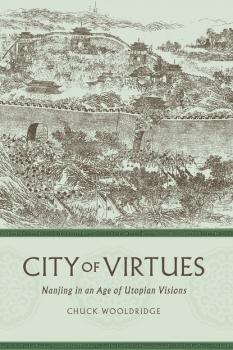Историческая литература
Различные книги в жанре Историческая литератураThe Han
This ethnography explores contemporary narratives of “Han-ness,” revealing the nuances of what Han identity means today in relation to that of the fifty-five officially recognized minority ethnic groups in China, as well as in relation to home place identities and the country’s national identity. Based on research she conducted among native and migrant Han in Shanghai and Beijing, Aqsu (in Xinjiang), and the Sichuan-Yunnan border area, Agnieszka Joniak-Luthi uncovers and discusses these identity topographies. Bringing into focus the Han majority, which has long acted as an unexamined backdrop to ethnic minorities, Joniak-Luthi contributes to the emerging field of critical Han studies as she considers how the Han describe themselves – particularly what unites and divides them – as well as the functions of Han identity and the processes through which it is maintained and reproduced. The Han wil l appeal to scholars and students of contemporary China, anthropology, and ethnic and cultural studies.
City of Virtues
Throughout Nanjing’s history, writers have claimed that its spectacular landscape of mountains and rivers imbued the city with “royal qi ,” making it a place of great political significance. City of Virtues examines the ways a series of visionaries, drawing on past glories of the city, projected their ideologies onto Nanjing as they constructed buildings, performed rituals, and reworked the literary heritage of the city. More than an urban history of Nanjing from the late 18th century until 1911 – encompassing the Opium War, the Taiping occupation of the city, the rebuilding of the city by Zeng Guofan, and attempts to establish it as the capital of the Republic of China – this study shows how utopian visions of the cosmos shaped Nanjing’s path through the turbulent 19th century.
Gender and Chinese History
Until the 1980s, a common narrative about women in China had been one of victimization: women had dutifully endured a patriarchal civilization for thousands of years, living cloistered, uneducated lives separate from the larger social and cultural world, until they were liberated by political upheavals in the twentieth century. Rich scholarship on gender in China has since complicated the picture of women in Chinese society, revealing the roles women have played as active agents in their families, businesses, and artistic communities. The essays in this collection go further by assessing the ways in which the study of gender has changed our understanding of Chinese history and showing how the study of gender in China challenges our assumptions about China, the past, and gender itself.
Urbanization in Early and Medieval China
The heart of Urbanization in Early and Medieval China consists of translations of three gazetteers written during the Han (206 BCE–220 CE), Tang (618–907), and Northern Song (960–1126) dynasties describing the city of Suzhou. The texts allow the reader to trace the dramatic changes that occurred as the city experienced enormous political and social upheavals over nine centuries. Each translation is accompanied by extensive annotation and a detailed discussion of the historical background of the text, authorship, and publication history. The book also traces the development of the gazetteer genre, the history of urban planning in China, and what we know about the early development of Suzhou from other texts and archaeological research. Urbanization in Early and Medieval China will be useful not only to scholars of Chinese history, but to scholars studying architecture and urban planning as well.
Andean Waterways
Andean Waterways explores the politics of natural resource use in the Peruvian Andes in the context of climate change and neoliberal expansion. It does so through careful ethnographic analysis of the constitution of waterways, illustrating how water becomes entangled in a variety of political, social, and cultural concerns. Set in the highland town of Recuay in Ancash, the book traces the ways in which water affects political and ecological relations as glaciers recede. By looking at the shared waterways of four villages located in the foothills of Cordillera Blanca, it addresses pertinent questions concerning water governance and rural lives. This case study of water politics will be useful to anthropologists, resource managers, environmental policy makers, and other readers who are interested in the effects of environmental change on rural communities.Watch the book trailer: https://www.youtube.com/watch?v=voiLZkIWNU4
The Drunken Man's Talk
This collection of short stories, anecdotes, and poems was likely compiled during the 13th century. Tales of romantic love—including courtship, marriage, and illicit affairs—unify the collection and make it an essential primary source for literary and social history, since official Chinese history sources did not usually discuss family conflict or sexual matters.This volume, the first complete translation of The Drunken Man’s Talk (Xinbian zuiweng tanlu) in any language, includes an introduction that explores the literary significance of the work as well as annotations explaining the symbolism and allusions found in the stories.
Frontier Livelihoods
Do ethnic minorities have the power to alter the course of their fortune when living within a socialist state? In Frontier Livelihoods , the authors focus their study on the Hmong – known in China as the Miao – in the Sino-Vietnamese borderlands, contending that individuals and households create livelihoods about which governments often know little.The product of wide-ranging research over many years, Frontier Livelihoods bridges the traditional divide between studies of China and peninsular Southeast Asia by examining the agency, dynamics, and resilience of livelihoods adopted by Hmong communities in Vietnam and in China’s Yunnan Province. It covers the reactions to state modernization projects among this ethnic group in two separate national jurisdictions and contributes to a growing body of literature on cross-border relationships between ethnic minorities in the borderlands of China and its neighbors and in Southeast Asia more broadly.
God's Little Daughters
God's Little Daughters examines a set of letters written by Chinese Catholic women from a small village in Manchuria to their French missionary, «Father Lin,» or Dominique Maurice Pourquié, who in 1870 had returned to France in poor health after spending twenty-three years at the local mission of the Société des Missions Etrangères de Paris (MEP). The letters were from three sisters of the Du family, who had taken religious vows and committed themselves to a life of contemplation and worship that allowed them rare privacy and the opportunity to learn to read and write. Inspired by a close reading of the letters, Ji Li explores how French Catholic missionaries of the MEP translated and disseminated their Christian message in northeast China from the mid-19th to the early 20th centuries, and how these converts interpreted and transformed their Catholic faith to articulate an awareness of self. The interplay of religious experience, rhetorical skill, and gender relations revealed in the letters allow us to reconstruct the neglected voices of Catholic women in rural China.
Excavating the Afterlife
In Excavating the Afterlife, Guolong Lai explores the dialectical relationship between sociopolitical change and mortuary religion from an archaeological perspective. By examining burial structure, grave goods, and religious documents unearthed from groups of well-preserved tombs in southern China, Lai shows that new attitudes toward the dead, resulting from the trauma of violent political struggle and warfare, permanently altered the early Chinese conceptions of this world and the afterlife. The book grounds the important changes in religious beliefs and ritual practices firmly in the sociopolitical transition from the Warring States (ca. 453�221 BCE) to the early empires (3rd century�1st century BCE). A methodologically sophisticated synthesis of archaeological, art historical, and textual sources, Excavating the Afterlife will be of interest to art historians, archaeologists, and textual scholars of China, as well as to students of comparative religions.For more information: http://arthistorypi.org/books/excavating-the-afterlife
A Chemehuevi Song
The Chemehuevi of the Twenty-Nine Palms tribe of Southern California stands as a testament to the power of perseverance. This small, nomadic band of Southern Paiute Indians has been repeatedly marginalized by European settlers, other Native groups, and, until now, historical narratives that have all too often overlooked them. Having survived much of the past two centuries without rights to their homeland or any self-governing abilities, the Chemehuevi were a mostly “forgotten” people until the creation of the Twenty-Nine Palms Reservation in 1974. Since then, they have formed a tribal government that addresses many of the same challenges faced by other tribes, including preserving cultural identity and managing a thriving gaming industry. A dedicated historian who worked closely with the Chemehuevi for more than a decade, Clifford Trafzer shows how this once-splintered tribe persevered using sacred songs and other cultural practices to maintain tribal identity during the long period when it lacked both a homeland and autonomy. The Chemehuevi believe that their history and their ancestors are always present, and Trafzer honors that belief through his emphasis on individual and family stories. In doing so, he not only sheds light on an overlooked tribe but also presents an important new model for tribal history scholarship. A Chemehuevi Song strikes the difficult balance of placing a community-driven research agenda within the latest currents of indigenous studies scholarship. Chemehuevi voices, both past and present, are used to narrate the story of the tribe’s tireless efforts to gain recognition and autonomy. The end result is a song of resilience.









